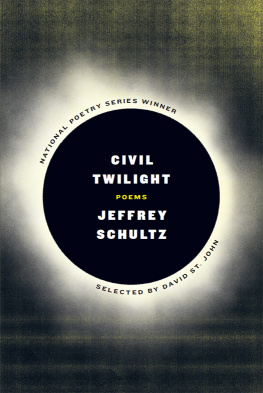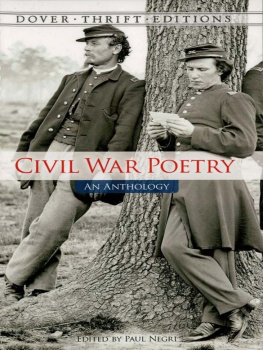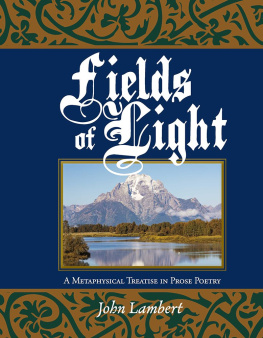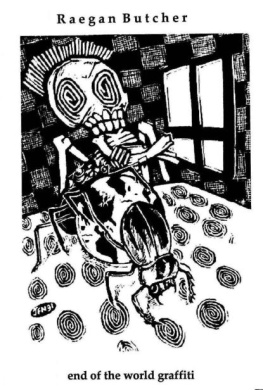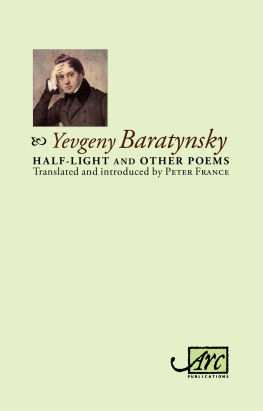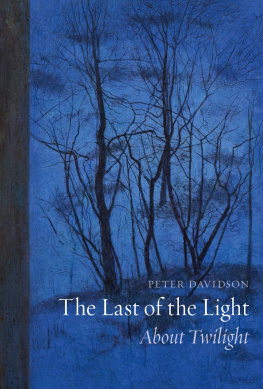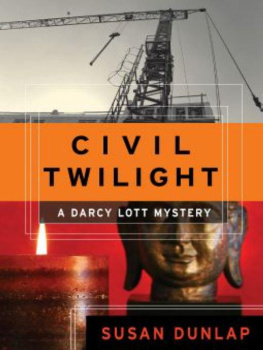Rendering poetry in a digital format presents several challenges, just as its many forms continue to challenge the conventions of print. In print, however, a poem takes place within the static confines of a page, hewing as close as possible to the poets intent, whether its Walt Whitmans lines stretching to the margin like Route 66, or Robert Creeleys lines descending the page like a string tie. The printed poem has a physical shape, one defined by the negative space that surrounds ita space that is crafted by the broken lines of the poem. The line, as vital a formal and critical component of the form of a poem as metaphor, creates rhythm, timing, proportion, drama, meaning, tension, and so on. Reading poetry on a small device will not always deliver line breaks as the poet intendedwith the pressure the horizontal line brings to a poem, rather than the completion of the grammatical unit. The line, intended as a formal and critical component of the form of the poem, has been corrupted by breaking it where it was not meant to break, interrupting a number of important elements of the poetic structurerhythm, timing, proportion, drama, meaning, and so on.
Its a little like a tightrope walker running out of rope before reaching the other side. There are limits to what can be done with long lines on digital screens. At some point, a line must break. If it has to break more than once or twice, it is no longer a poetic line, with the integrity that lineation demands. On smaller devices with enlarged type, a line break may not appear where its author intended, interrupting the unit of the line and its importance in the poems structure. We attempt to accommodate long lines with a hanging indentsimilar in fashion to the way Whitmans lines were treated in books whose margins could not honor his discursive length.
On your screen, a long line will break according to the space available, with the remainder of the line wrapping at an indent. This allows readers to retain control over the appearance of text on any device, while also indicating where the author intended the line to break. This may not be a perfect solution, as some readers initially may be confused. We have to accept, however, that we are creating poetry e-books in a world that is imperfect for themand we understand that to some degree the line may be compromised. Despite this, weve attempted to protect the integrity of the line, thus allowing readers of poetry to travel fully stocked with the poetry that needs to be with them. Dan Halpern, Publisher
Thanks to the editors and staffs of the following publications, in which some of the poems from this collection originally appeared, sometimes in slightly different form: Academy of American Poets Poem-a-Day: Habeas Corpus
TriQuarterly: Civil Twilight
Southern Indiana Review: Offering of Two Burning Calves Selections from Resolution in Loving Memory of Sky & Gooseflesh appeared in
Fogged Clarity, and Habeas Corpus was anthologized in
The Manifesto Project.
Thanks to David St. John, Beth Dial, Daniel Halpern, and the National Poetry Series, and to Bridget Read and everyone at Ecco and HarperCollins. For their support, guidance, and friendship, thanks to my family, to Chuck and Dianne Hanzlicek, Peter Everwine, Connie and John Hales, Dixie Salazar and Jon Veinberg, Franny Levine, Pimone Triplett, James Leveque, Allison Perkins, Cyndy Holder, Adam Van Arsdale and Hlne Bilis, Giri Iyengar, Lorie Goodman and Bob Cook, Jonas Lerman and Kristin Mjolsnes, Jane Rodeheffer, Maire Mullins, Michael Ditmore, F. Douglas Brown, Marty Williams, Carlos Ramrez, and Genny Moore. Thanks to all my wonderful students, most especially Matthew Jones, Rachal Marquez, Levi Osburn, Alex Free, Ben Keoseyan, and Kami Bates, for humoring and enabling me. For reading versions of these poems in progress and for their tremendous encouragement, solidarity, and comradeship, thanks to Anna Tullis, Ben Evans, Jordan Straubel, Aaron Schott, Joel Wood, Brian Simoneau, and Isaac Randel.
Special thanks in this regard to Joshua Robbins, Megan Levad, Alana Grambush, Hillary Eaton, Garrett Hongo, Haley Laningham, and George Kovalenko. For her absolutely unwavering support and for her unerring eye and ear and heart and mind, as well as for putting up with me from day to day, thanks most of all to Leah Hanzlicek, to whom this book would be dedicated, would such a dedication not seem so deliriously awful. In memoriam: Ruth and Vernon Schultz, always radically themselves.
History? We dont know. Well all be dead. George W.
Bush If, our irises unflexing, their novaes bursts succumbing to apertures Black, our pupils becoming willing to admit what they might admit, However insufficient, however insignificant in that scheme of things We imagine must even now unfold somehow beyond our understanding, Beyond us, if to look up widening into the night sky and stare at the stars, Those grains of salt scattered across obsidian, those pale fires, Those distant repositories of whatever we put there, those whatever, Is in fact to stare into the past, then to live in the city is to live without History. Or is at least to live blind to it, mistake it for something else, Some cobble exposed as the asphalt chips, little by little, away, Some incompleteness that yet offers us a sense of completion, a sense Some something must have led to all this, some strategic planning Commissions guiding hand, some intelligent designers intelligent design. Best to worry over it no further, best to not ask why regarding the thisness Of this, the thatness of that, best face facts: go down that wrong road And your FOIA requests denials will drag on for years, and youve only So many left, you know, so many years before the Municipality of Matter Not Tied Up for the Moment in the Operation of Any Consciousness Comes to file its own claimits eminent domain, your body; besides, The legal fees will ruin you and, well, dont you want to enjoy life? Let it, As they say, lie. Which it does, as per precedent, as we would expect. And you try, Lord knows you try to act right, keep things simple, Show up to meetings mostly on time and looking like you might belong, Like youre committed to the institution and to its mission, though not, You know, too committed, nothing that would arouse suspicion youre Anything but perfectly professional, perfectly detached, the causes you call Your own really only things to pass time that might pass otherwise unfilled. But the idea was that we would not be contained by what contains us, That we could walk outside and gaze upward and open ourselves not To some speckled nothing, not to the citys orangey haze reflected back But, because the biconvex curvature of our eyes lenses is, finally, Our curvature, open ourselves instead out to our own likeness, widened And clarified by time and distance, that against that endless unpatterning A field of meaningful points might be plotted.
And though, sure, We can check the Weeklys horoscope, read that the Great Dog has ransacked The House of Gemini, read in the police blotter that its on a spree, tearing Through each house in turn, shredding the archiveswhich anyway Were only ever accessible to initiates, so investigators shrugand soiling The rugs, read in the features that its now-missing owners beat it as a pup And that its story has been optioned for a film, its far from what you feel Was promised, far from your good behaviors just reward. So you try again To think things through, try to remember at each moment that everyone Else exists and is not trying to think of you thinking of them, and that that Has always been the case, even and especially before you were there to try And to fail at it, a failure which has now left you stunned aware Of the little space that makes up your own consciousness, which gazes Up at a nothing that reflects only its own blank vastness back to you, And then even those things that catch at the corners of your eyes Seem suddenly very genuinely perched at perceptions precipitous edge, And its thatthe violent wonder of beingthat you would want To come to understand and press outward until it could be called a history Of something, a history that, if you could imagine it fully and know ityou Along with simultaneously everyonewould be what we could call hope. And its this last part, which amounts to despairs almost measurable presence, That leaves you bed-bound and despairing. Your doctor, making note Of your case history, making note of the insurance companys reluctance And this has little to do with you, but ever since the courts upheld Corporations right to marry they seem hardly interested in us, Seem consumed by their family lives, by raising their young dividends Up right, our future upright corporate citizensto prescribe for you The different world in which you could actually live, making note that, Of this summers dog days youve now spent three massacres or two weeks Depending, of course, on whether youve converted to the newly instituted Second Amendmentarian calendar or are still among the Gregorians, With their quaint memories of feast days and cool weather seasons, With their old idea of existence as unending cycle, a natural enough thing To believe in before existence revealed its spiral down toward catastrophe, But anyway however you want to measure it, youve been essentially Immobilized for a good while now and what your doctor suggests In lieu of fulfillment is at least making sure to get out a little bit, Certain of course youve first massaged a sufficient quantity of sunscreen, The oxybenzone in which causes coral reefs and by extension, eventually, Everything to wither and disappear, into your skin, because you want to be Safe as you can be, your doctor says, dont want to take unnecessary risks, Want to be able to pass through the world without falling in love with it: To move without being moved. To admit nothing, least of all delusion, The admission of which triggers a series of red flags and automated alarms That will, finally, result in the Corporations notification: supper interrupted, He dabs his lips with his napkin and excuses himself, apologizes to the wife, Smiles quickly at the children before heading back to his study to dial up His old school friend the State, who mobilizes the necessary resources, Which are not inconsiderable. Best to listen to good sense; best rest easy.

